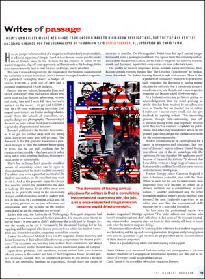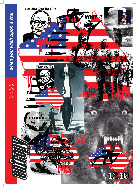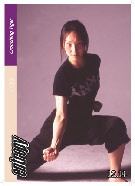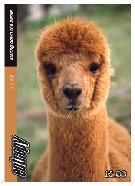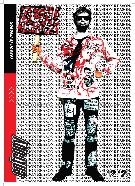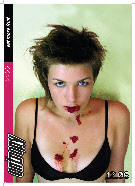Derek Tickner
© 2016 Derek Tickner

How do you get to be an editor of a magazine with absolutely no journalistic or editorial experience?
Simple. Enrol at uni for any course you like, make lots of friends, stand in the elections for the position of editor of the student magazine, deride your opponents as illiterate boors at the hustings, bribe your new mates with beer to vote for you: and presto, you’re an editor.
This year I’m the co-
We have six part-
Entropy’s publisher is the Student Association, so if we get too carried away with the biting satire, they’re the one’s that will get sued. The down side is that this gives the association’s president the right to view the contents before going to print, and the power to pull anything that they consider is libellous, defamatory, racist, sexist or homophobic.
Which is fine in theory. But this gives the president considerable powers of censorship which could be open to abuse, particularly if they are a little paranoid. The editors may write a piece that is critical of the student’s association, so the president may want to cut it. And as the president signs the cheque that pays the printer, he has the clout to back up his stance.
An editor must soon learn to be politically savvy in the emotionally charged and Machiavellian world of student politics. Do you stand by a controversial article and risk not getting printed, or do you schmooze and compromise with the factions on the student council and so get the magazine out on time?
Earlier this year the University of Wollongong’s Tertangala magazine had ten pages in one issue censored by their president. His reasons were bizarre to say the least, in one case he didn’t understanding the article and he thought no one else would, so he cut it. Fortunately his dictatorial leanings led to his toppling, he resigned after intense pressure from within his student’s association and from other student magazines around the country.
I asked Stan and JC, the editors of Adelaide Uni’s On Dit magazine, if their editorial freedom was compromised by student politicians. “On occasions yes, but they have realised their constituents will always side with student media. Student media wields much more power on campus.”
Student editors have carte blanche when it comes to the content and look of their magazines. Music, sex and politics (the recent round of HECS increases fired up many a hack) are popular with the younger demographic.
With no direct commercial pressure to stay with a set style there is an unrivalled freedom to experiment, though there are the laws of decency to consider. On Dit magazine’s infamous Fetish issue last April carried images that would make a Swedish pornographer blush. The uproar from the university authorities and the student association saw the bulk of the print run hastily removed from the stands and destroyed. Squirreled away copies are now collector’s items.
The quality of student magazines across Australia vary enormously, from laddish tabloids running features like The Drunken Yiros Review, to publications that mimic The Sydney Morning Herald in style and content.
There is also the problem of consistency from year to year within each magazine. The downside of having annual elections is that a completely inexperienced team may get to be editors, and a once respected magazine can become bland drivel overnight. Reasons for standing vary from being able to impress people at parties to hidden political motives. By controlling the student media they can positively spin their faction and pour scorn on their opponents.
Student magazines provide a good medium for budding journos to get printed. A tentative young writer may need encouragement to keep writing, and hopefully they’ll improve until they reach a standard acceptable for publication. And when they’ve seen their article on the page, embellished with graphics and photographs, they often gain the confidence to write for the mainstream media. And any published work always looks good on a resume´.
Student journalism is a springboard for a career in newspapers and magazines. Last
year one of Entropy’s sub-
I asked the more cynical Stan and JC if any of On Dit’s previous editors or contributors had progressed to a career in professional journalism: “Yes, the less promising ones are headhunted by the Murdoch press. Mainstream media is not very interested in writers who demonstrate independent thought.”
Cameron England is a former editor of Entropy and is now a business journalist with the Advertiser. He became involved with student journalism because, “I hadn’t had too much experience in writing feature articles, there aren’t too many outlets for that in Adelaide.”
When he went for a job with The Advertiser, Cameron says that his interviewers were impressed that he’d become an editor as it showed initiative and a commitment to journalism. “I couldn’t understand why the other journalism students weren’t getting into it,” he says.
Cameron’s experience as an editor gave him the organisational skills necessary to be a successful journalist: the ability to meet deadlines, interview subjects, think visually, organise photographers, sound office administration and more.
How does the professional media view the student magazines? Daniel Brettig offers this opinion: “The older editors and journos who haven’t been through uni don’t talk about it. But the younger journalist, whose student magazine days are still fresh in their minds; some still keep in touch with what the student mags are doing.”
Mainstream editors should be fostering links with their local student magazines and
taking note of the up-
There is a pool of new talent out there waiting to be tapped.
Writes of Passage
Today’s university magazines range from laddish rags to high-
